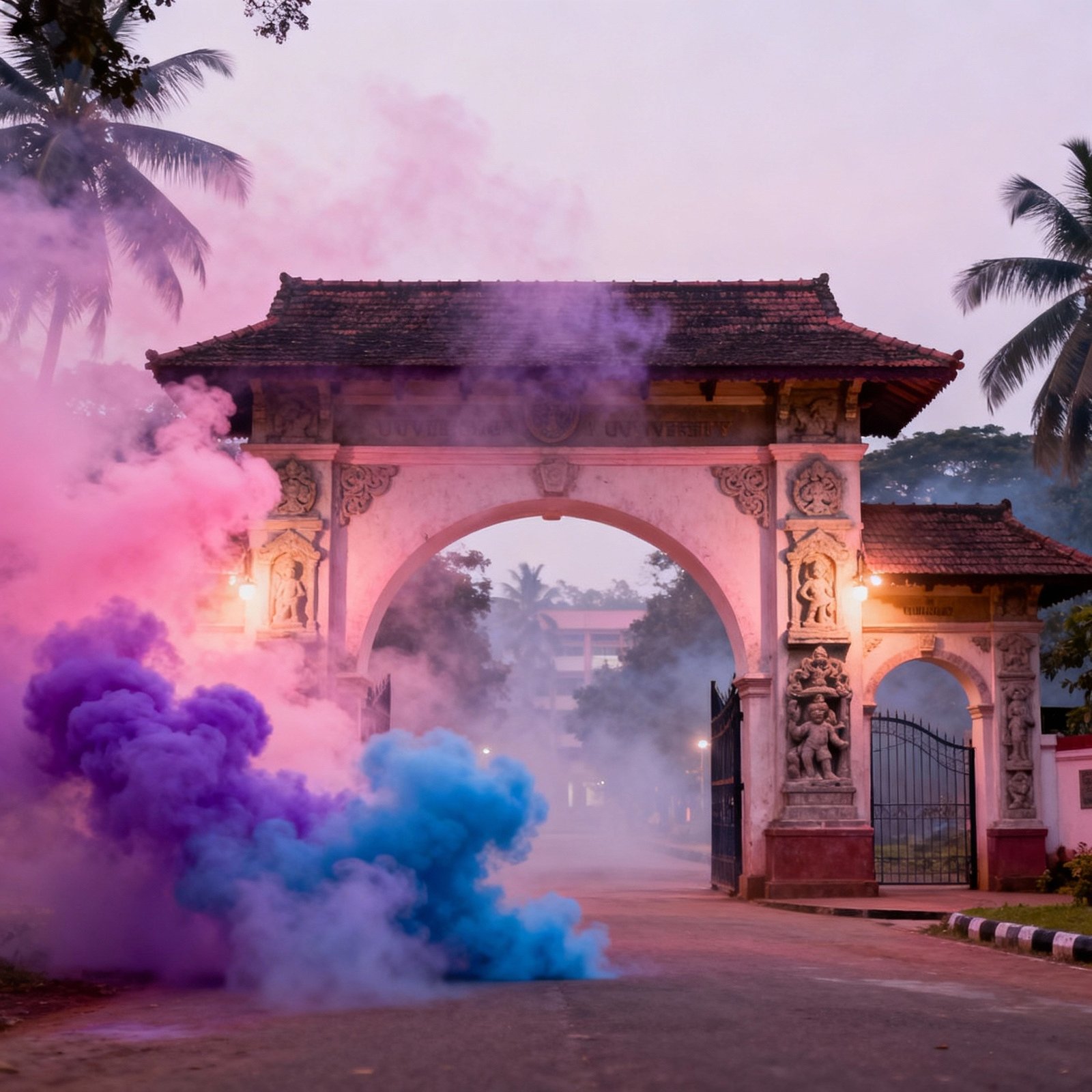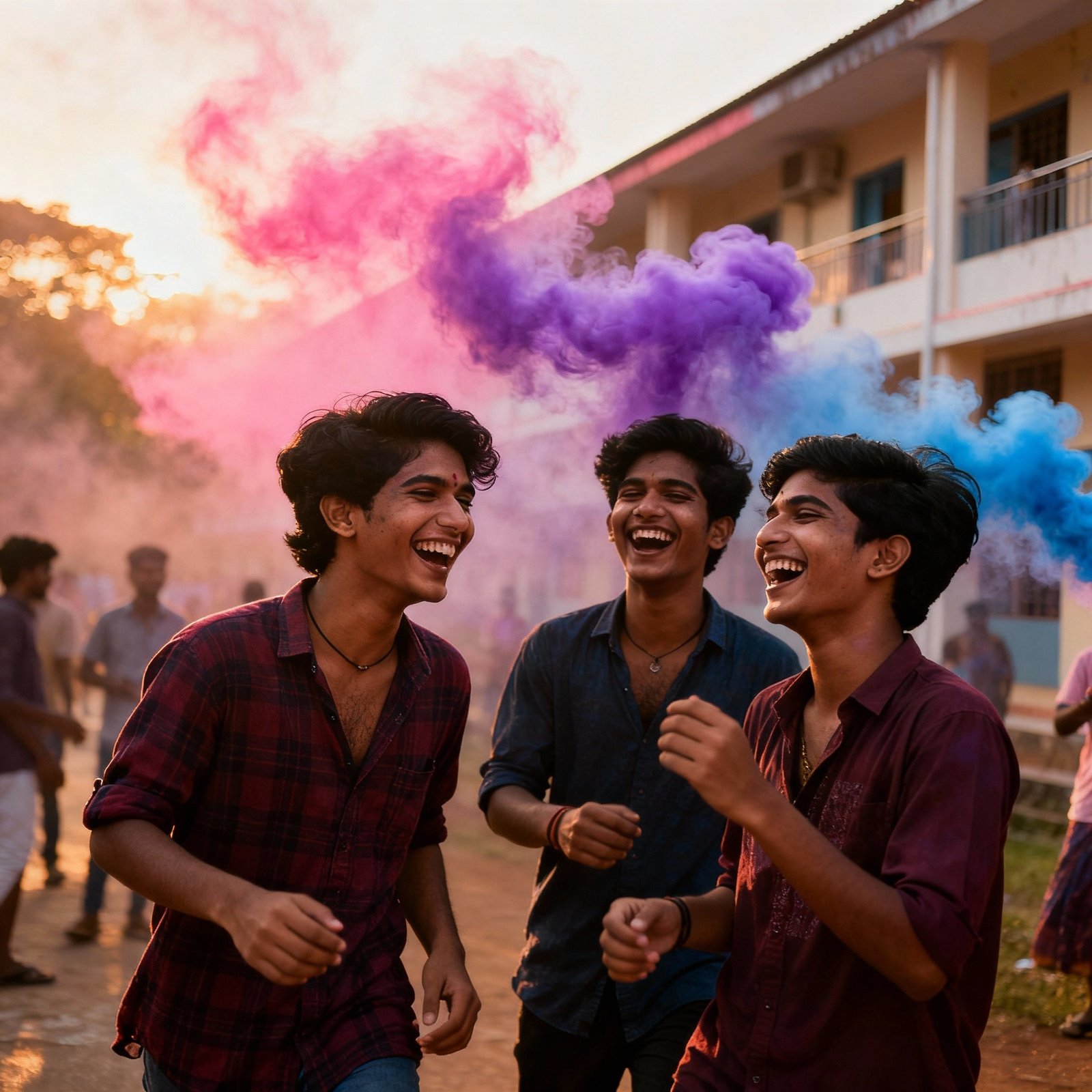In a groundbreaking step toward dismantling educational barriers for one of India’s most marginalized communities, Mahatma Gandhi University in Kottayam, Kerala, has inaugurated the state’s first-ever hostel exclusively for transgender students. This pioneering initiative, unveiled in August 2025 by State Social Justice Minister R. Bindhu, represents not merely the provision of accommodation but a profound statement of dignity, belonging, and institutional commitment to equality in higher education.

The six-bed facility, located on the university’s sprawling campus, emerges from years of advocacy by transgender students and faculty members who repeatedly highlighted the discrimination and housing challenges faced by the community. For transgender students navigating India’s higher education landscape, finding safe accommodation has historically represented a significant barrier, with many facing landlord rejection, exorbitant rental demands, and daily exclusion from conventional gendered housing arrangements. The hostel addresses these challenges head-on, creating a sanctuary where students can pursue their academic ambitions without fear of discrimination or displacement.
The Urgent Need:
Understanding the Educational Crisis Facing Transgender Students
The launch of this hostel occurs against a backdrop of stark educational inequalities. According to the 2011 census, the literacy rate among India’s transgender population stood at merely 56.1 percent, significantly trailing the national average of 74.04 percent. This disparity reflects not a lack of intellectual capability but rather the systematic exclusion transgender individuals face throughout their educational journey. Research indicates that approximately 90 percent of transgender students in Kerala’s higher education system have experienced various forms of discrimination and harassment, including bullying and verbal abuse within their institutions.

These challenges extend far beyond social discomfort. Studies reveal that 80 percent of transgender students report that their educational institutions lack gender-neutral bathroom and restroom facilities, forcing them to navigate spaces that do not correspond to their gender identity and creating profound emotional distress. The absence of inclusive infrastructure, coupled with widespread faculty and peer insensitivity, contributes to alarmingly high dropout rates among transgender students. Many discontinue their education not due to academic inadequacy but because the institutional environment becomes psychologically and emotionally unsustainable.
The housing dimension of this crisis deserves particular attention. Transgender students seeking accommodation near universities encounter a maze of obstacles, from outright rejection by landlords to demands for higher rental rates based solely on their gender identity. Even when students gain admission to conventional hostels, they frequently face harassment, misgendering, and social isolation. Some universities have attempted to address these issues through non-segregated accommodation, but such arrangements often fail to address the specific vulnerabilities and support needs of transgender students.

Kerala’s Progressive Trajectory: A Context of Policy Innovation
Mahatma Gandhi University’s hostel initiative aligns with Kerala’s broader reputation as a pioneer in transgender rights and welfare. The state made history in 2015 by becoming the first in India to unveil a comprehensive transgender policy, establishing a framework aimed at ensuring dignity, equality, and development opportunities for the community. This policy sought to address the reality that many transgender individuals in Kerala were relegated to begging or coerced into sex work due to systemic exclusion from formal education and employment pathways.
Building on this foundation, Kerala has implemented several innovative programs targeting transgender welfare. The state government, through the Kerala State Women’s Development Corporation, provides loans of up to Rs. 3 lakh to transgender individuals for self-employment initiatives, recognizing economic stability as foundational to community empowerment. In 2023, Kerala introduced the “Queer-Friendly Hospital Initiative” across four districts, training healthcare staff to provide discrimination-free medical services and establishing Community Link Workers to bridge gaps between transgender individuals and healthcare systems. The state has also granted reservations for transgender individuals in nursing programs, marking another first in India.
These policy innovations reflect Kerala’s understanding that meaningful inclusion requires coordinated interventions across multiple sectors. Education, healthcare, employment, and social support systems must simultaneously evolve to create an environment where transgender individuals can thrive rather than merely survive.
The Hostel Initiative: Design, Impact, and Future Prospects
Minister R. Bindhu’s inauguration speech emphasized the hostel’s significance within the context of increasing transgender participation in higher education. She noted a remarkable rise in the number of transgender students qualifying for the Junior Research Fellowship in Kerala, indicating growing academic achievement within the community. “The marginalized community is fighting various odds in life. We should ensure social support for them,” Bindhu stated, acknowledging that many transgender individuals face rejection even from their families, making societal acceptance and institutional support all the more critical.

University officials expressed hope that the hostel would serve as more than accommodation, functioning as a catalyst to encourage greater transgender enrollment in higher education programs. The facility provides students with secure housing at affordable rates, eliminating the financial burden of high rental costs that often force students to abandon their studies. One transgender student described the hostel as a “boon,” emphasizing how the availability of safe campus accommodation fundamentally transforms educational accessibility.
While the current capacity stands at six students, university sources have indicated plans to construct a permanent, larger facility to accommodate the growing demand. The existing hostel, converted from staff quarters as a temporary measure, already houses three students, with officials anticipating that more than 25 students from various affiliated colleges will eventually benefit from the permanent structure.
Systemic Challenges and the Path Forward
Despite the celebratory nature of this initiative, significant challenges remain embedded within India’s higher education infrastructure. Research on transgender inclusion reveals that many institutions lack the fundamental components necessary for true inclusivity. Gender-neutral toilets, changing facilities, and counseling services specifically designed to address the mental health needs of transgender students remain rare. Curricula rarely incorporate transgender perspectives or histories, and faculty members often lack training in gender sensitivity, perpetuating microaggressions and creating hostile learning environments.

Administrative processes pose additional obstacles. Transgender students who come out during their academic careers or undergo gender-affirming procedures face byzantine bureaucratic hurdles when attempting to change their names and gender markers on official documents. Some students have been denied readmission following surgery or prevented from changing hostel assignments to align with their gender identity. These systemic inadequacies reflect the gap between progressive policy intentions and lived institutional realities.
The Maharashtra government’s mandate requiring all higher education institutions to establish transgender cells provides one model for comprehensive support, with these cells tasked with providing counseling, career guidance, and academic assistance tailored specifically for transgender students. However, implementation remains inconsistent, and many students continue to experience the policies as tokenistic rather than transformative.
Educational reform must extend beyond infrastructure to encompass curriculum, pedagogy, and institutional culture. The National Education Policy 2020 includes provisions for gender-inclusive education, but critics note the lack of specific guidelines on infrastructure requirements, anti-discrimination measures, and mandatory teacher training for transgender inclusion. Realizing truly equitable higher education demands sustained commitment from all stakeholders, including policymakers, administrators, faculty, and student bodies.
Broader Implications: Setting a National Precedent
Mahatma Gandhi University’s initiative has garnered national attention as a potential model for other institutions across India. The Tata Institute of Social Sciences in Mumbai previously established India’s first gender-neutral hostel in 2023, offering accommodation to gender non-conforming, genderqueer, and transgender students alongside cisgender allies. However, the dedicated transgender hostel at MGU represents a distinct approach, acknowledging that transgender students may benefit from community-specific spaces that center their particular experiences and support needs.

Social media responses and media coverage have celebrated the hostel as a milestone in India’s journey toward gender justice. Activists and community members have framed the initiative as demonstrating that campus life can and should be accessible to everyone, regardless of gender identity. The question now facing India’s higher education sector is clear: if one university can implement such a facility, what prevents every institution from following suit?
The intersection of housing security and educational access cannot be overstated. Research consistently demonstrates that stable, safe accommodation directly correlates with academic persistence and success. For transgender students who have historically navigated educational systems designed without consideration for their existence, the presence of dedicated housing represents both practical support and symbolic affirmation of their right to higher education.
Q+: Building an Ecosystem of Belonging Beyond Campus
While institutional initiatives like Mahatma Gandhi University’s hostel mark critical progress, the broader challenge of creating affirming spaces for LGBTQ+ individuals extends far beyond university gates. This is where platforms like Q+ are making their mark. As a comprehensive LGBTQ+ exclusive lifestyle ecosystem, Q+ is reimagining what support and community can look like for India’s queer population.
Founded with the vision of creating spaces that transcend the limitations of traditional support models, Q+ offers an integrated approach encompassing community engagement, lifestyle services, and affirming environments. Unlike isolated interventions that address single dimensions of queer life, Q+ recognizes that meaningful inclusion requires holistic ecosystems where individuals can access everything from social connections to professional opportunities, from cultural expression to daily life services—all within affirming, non-discriminatory contexts.
The platform’s approach mirrors the philosophy underlying the MGU hostel: that true belonging emerges not from tolerance but from intentional design of spaces where LGBTQ+ individuals can exist without justification or compromise. As educational institutions take their first steps toward inclusivity, platforms like Q+ are building the broader infrastructure of community, culture, and commerce that ensures those educational gains translate into sustained life opportunities. The future of LGBTQ+ inclusion in India depends on this multi-layered approach, where universities, policy frameworks, and community-driven platforms work in concert to transform isolated safe spaces into an interconnected ecosystem of dignity and possibility



